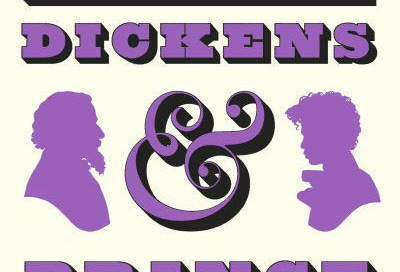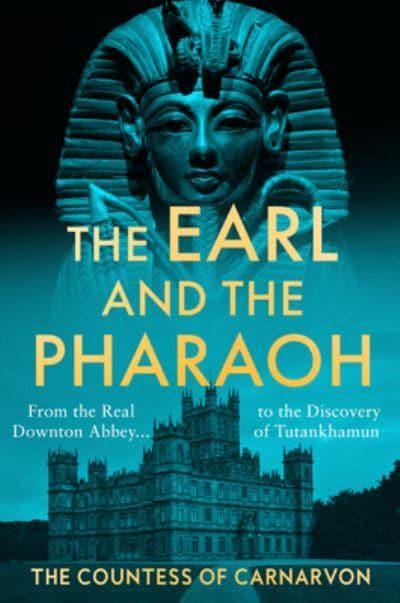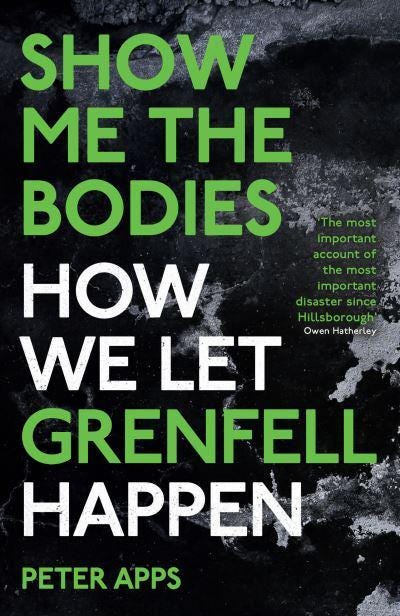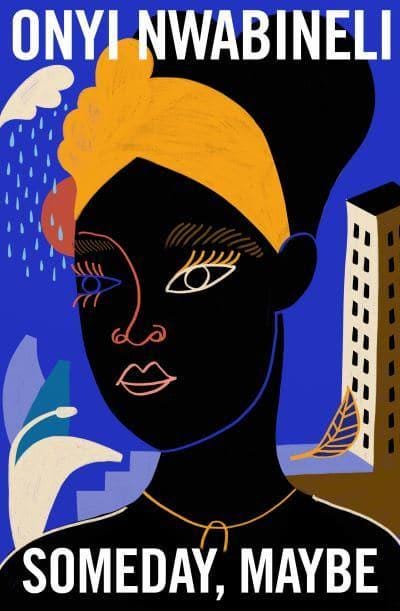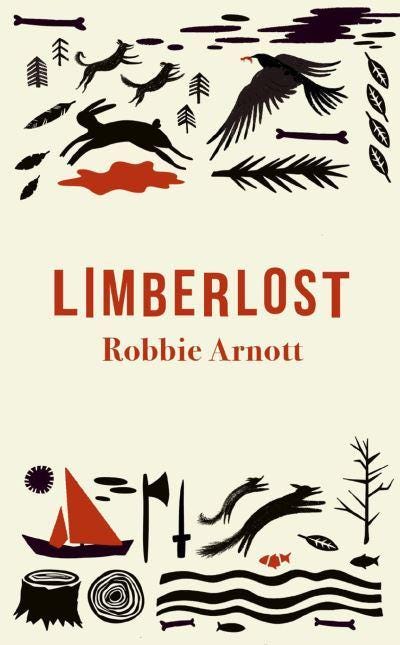Here is your digest of what the newspaper book reviews were talking about this weekend, don’t forget you can buy, or pre-order, any or all of these books from me now, and I can deliver them direct to you, usually within 48 hours.
Half term has been spent getting ready to open my new bookshop — both online though still putting the final touches to the website, and the physical store (more soon!) — but we did manage one outing to Hever Castle. It was a glorious autumnal day and we sat outside eating our picnic in the shadow of the castle which was once home to (and probably birthplace of) Anne Boleyn. As we walked around its interiors, past portraits of Henry VIII who would visit Anne here before she became his wife, I imagined the excitement of the Boleyn family at the anticipation of the King’s arrival – they even had a bed especially made for him. Imagine the food though, all that would have been organised especially for the monarch, perhaps without much warning of his arrival, and the first book this week, reviewed in The Times by Dan Jones, mentions that a potion made by baking an owl was a popular cure for gout at the time, something we know Henry VIII suffered from.
There have been countless books written about the Tudors, but this one, Jones promises us, will stand the test of time: ‘few are this serious, this readable and this funny.’ Tudor England – A History has been painstakingly packed with research and interesting titbits by historian Lucy Wooding, and among such stiff competition it must be hard to make your own book stand out, but apparently Wooding does this with aplomb and, by the sounds of things, plenty of personality because, let’s face it, historical biographies can often be written in very dry academic ways.
But what an amazing period she had to write about, as Jones says: ‘Between 1485 and 1603 the Tudors produced two hall-of-fame monarchs – Henry VIII and Elizabeth I. They gave us many juddering great historical events – the Battle of Bosworth, the Break with Rome, the Spanish Armada. They nurtured canonical writers and artists – Thomas More, Hans Holbein the Younger, William Shakespeare. Not for nothing have the Tudors been a mainstay of British history teaching and Hollywood costume drama for generations.’
Jones insists that it is Wooding’s approach to explore the Tudors from the ‘bottom up’ which will make this book a classic: ‘she writes clear, elegant, purposeful narrative and has a keen eye for weird stuff.’ And it is the weird, like recipes for baked owl, that we look to history for – not that we’re intending to try them at home, (though can you imagine how cute the baking dish could be?)
At more than 700 pages, it would have been a bit heavy to cart round Hever, but published on November 9th it will certainly make a hefty Christmas present for any history buff in your family, and handily, you can buy it from me!
• Tudor England – A History by Lucy Wooding (Yale University Press) £30
So the ‘wait, what?’ book of the week has to be the latest from Nick Hornby, which at 90 pages is actually, more of an essay. Still, I love short books, and I love Prince and so I my curiosity was piqued. But what the dickens is a Victorian author doing in the title?
Dickens & Prince – A Particular Kind of Genius is a love letter by Hornby to both artists. It was apparently a commemorative boxset of Prince’s 1987 Sign O’ The Times containing 63 unreleased songs that inspired Hornby to write this book because he was wondering which other creatives had been as prolific in their lifetime, and within a hop, skip, and a jump, he landed on Dickens – as you do.
His research took him on trip through both of their lives, which started out in poverty and with parents they could barely depend on: ‘Dickens moved into a boarding house aged 12 while the rest of his family were packed off to Marshalsea debtors’ prison,’ writes Fiona Sturges, reviewing in the Guardian. ‘At the same age, Prince was kicked out by his father and forced to set up home in a friend’s basement.’
Both artists also felt aggrieved that their respective industries did not value them, Prince, of course, famously inked his face with ‘slave’ when he was denied a way out of his recording contract, and Dickens took on anyone who plagiarised his work – quite understandably.
The line between them still seems a little iffily drawn to me, but Sturges insists that we should stick with this little book, and she asserts that it is what both of their works tell us about creativity that is when Hornby comes into his own: ‘the author has long been fascinated by the transformative impact of culture, so it’s natural that his ruminations on Dickens and Prince should cause him to reflect on his own status as consumer and creator… Hornby has no time for cultural hierarchies, treating his subjects as the equals (and kindred spirits) they undoubtedly are.’
It still feels… niche. But I guess we’re going to have to judge for ourselves, talking of which, don’t forget you can purchase a copy of Dickens & Prince from me, details below.
• Dickens & Prince – A Particular Kind of Genius by Nick Hornby (Viking) £9.99
Stuck for what to buy that Downton Abbey fan in your family for Christmas? The Daily Telegraph’s review section had an idea for you this weekend. I saw this book in the publishing catalogues a few weeks ago and got my order for copies in early, another non-fiction, more history but there is something quite magical about Tutankhamun and if you combine an Egyptian pharoah with a stately home, what could go wrong?
Well, the answer happened to be plenty actually, because just a few weeks after Lord Carnarvon, 5th Earl of Carnarvon and owner of Highclere (the setting for Downton Abbey, in case you weren’t aware), sponsored Howard Carter’s expedition to discover the boy-king’s tomb, he died of septacaemia. Now the current Countess of Carnarvon has written a book all about one of the most famous expeditions in the world and the Earl who paid for it.
The book tells in great and, by the sounds of it, entertaining detail the life of the 5th Earl in the late 19th Century and Early 20th Century and what lead him to his interests in archaology and egyptology in particular (strangely it was his love of fast cars and almost killing himself crashing one). But it is, of course, the 1922 discovery of King Tut’s tomb where the story gets most colourful.
‘The story of their quest for the tomb of an obscure pharoah is familiar but still exciting, and the countess tells is well, conjuring up the fights, the frustrations, the times when Carnarvon came close to cutting his losses and giving up and the moment in November 1922 when Carter held his candle up to a hole in the wall of Tutankhamun’s tomb and in answer to Carnarvon’s question, “can you see anything?” answered, “yes, wonderful things.”’
I have loved this story since 1987 when we learnt about it in my last year at primary school (I will also be heading to the British Museum’s hieroglyphs exhibition soon too), and so I can’t wait to read this book which you can pre-order in time for Christmas, and fingers crossed for an accompanying documentary in the new year.
• The Earl and the Pharoah by the Countess of Carnarvon (Harper) £20
If any book deserves to be made into a documentary, it is Show Me The Bodies: How We Let Grenfell Happen, a tough read that left Rowan Moore reviewing for The Observer in tears, and yet I believe it is our moral and society duty not to look away.
The author, Peter Apps, is a journalist who specialises in housing and was already investigating the popular cladding used on British tower blocks when the fire took hold in West London. What I hadn’t realised is that a similarly horrific event had happened at a tower black in Southwark back in 2009 and not only were lessons not learned but it seems from App’s research they were actively ignored.
‘App splices two timelines, alternating them chapter-by-chatper,’ writes Moore. ‘One is an hour-by-hour, minute-by-minute account of the night of the fire. The other is the decade-by-decade, year-by-year story of the progressive dissolution of the safeguards that were meant to prevent such a thing. In one you hear the voices of fear, grief, courage and love; and in the other those of obfuscation and prevarication, and of cynicism, greed and contempt.’
It will not be an easy read, but the most important ones rarely are. We owe it to those who perished not to look away now from the safety of our own homes.
• Show Me The Bodies: How We Let Grenfell Happen by Peter Apps (Oneworld) £10.99
Fiction now and two exciting new books I wanted to flag up to you, the first is written by debut writer Onyi Nwabineli, a Nigerian writer who moved to the UK as a child and as in real life her fiction straddles the two cultures. In Someday, Maybe her protagonist Eve, also Nigerian, meets, falls in love with and marries Quentin whose Wikipedia entry reveals, according to her bestfriend, that he ‘basically owns Sussex… he’s semi-royalty. And he’s underwear model fine.’
After ten years of marriage when Quentin takes his own life, Eve is left to tell the story of their love and unravel why he would have left her a widow at just 32.
“Following in the footsteps of novelists such as Candice Carty-Williams and Natasha Brown, Nwabineli exposes everyday racism while never feeling preachy…’ writes Susannah Butter, reviewing in The Sunday Times. ‘I was reeled in by her chatty voice and stayed for the tender, touching depiction of grief and family.’
It also has a beautiful cover.
• Someday, Maybe by Onyi Nwabineli (Oneworld) £16.99
I was pleased to read a review of Limberlost by Robbie Arnott in The Sunday Times too, as I can’t help thinking young, male authors are a little thin on the ground at the moment.
‘It is set in northern Tasmania over a Second World War summer, during which Arnott’s young hero, Ned West, years for his two elder brothers who have gone to fight overseas. The novel conjures an estuary world in which beasts come to life – arguably more arrestingly than the taciturn humans.’
It is one of these ‘beasts’ that Robert Collins reviewing in The Sunday Times fell for, so much so he wished the book had been named after it. ‘The star of his book, by far, is a sharp-toothed ferret-like marsupial called a quoll, which Ned ensnares by mistake, believe he’s going to catch a hawk preying on his sister’s chickens. Like the young hero of Kes, Ned adopts the creature. He keeps it in a crate and lovingly feeds it duck eggs while its leg heals from his trap.’
This sounds just the kind of escapism we all need at the moment.
• Limberlost by Robbie Arnott (Atlantic) £14.99
As I said at the top of this page, my website is still waiting for a few tiny bits and pieces to be fixed and so I can’t link you to the pages where these books appear on there but, fingers crossed, next week! If you would like to order any, or all, of these books from The Book Room, please drop me an email anna@annawharton.com knowing that I will be thrilled that you are supporting me in my new venture.
Until the reviews next Sunday…
Anna

